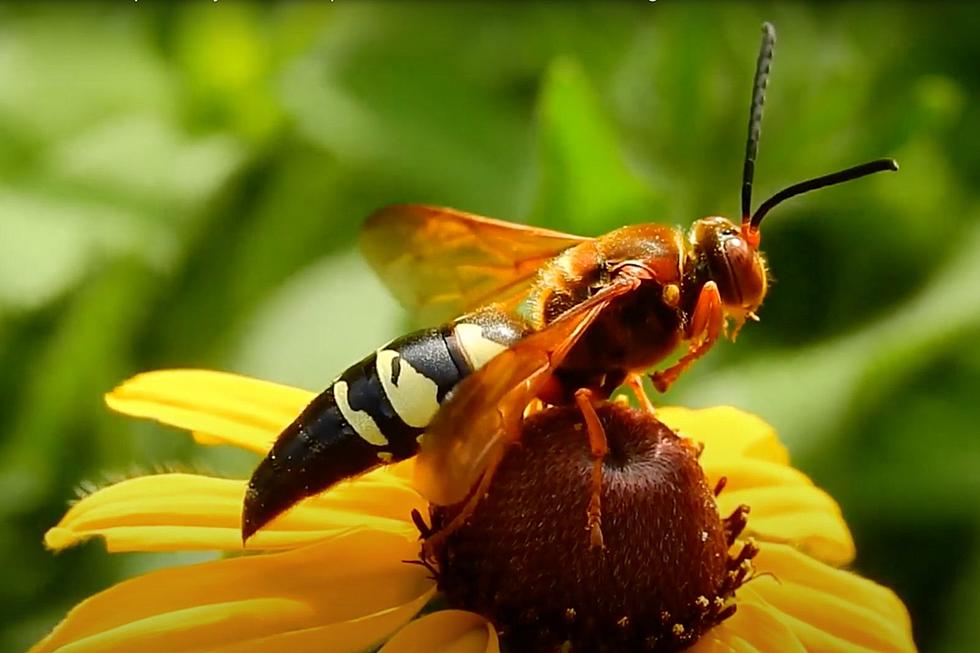
Cicada Killers Are Causing Panic for No Reason on the SouthCoast
With the whole "murder hornet" craze, every time someone sees an oversized bee, hornet or wasp, they automatically assume the worst.
After a long 17 years underground, swarms upon swarms of cicadas have emerged from the ground, creating a massive feast for larger insects and prey. Among these cicada predators are the Sphecius speciosus, or cicada killer wasps. These bugs made from nightmares grow up to two inches long and may appear absolutely terrifying if you were to come face to face with one.
However, as vicious as they look, they're actually the least you should worry out of the wasp and hornet species. According to the Entomology Department at the University of Kentucky, these insects rarely show aggression towards humans and are actually more vital than bad.

Sure, they're still pests, but with cicadas invading the Bristol County area, these are the wasps you want on your side, so try to avoid killing them at all costs. Now, I know what you're thinking: How do I tell if it's a cicada killer and not one of those Asian murder hornets? and I have just the answer.
Keep an eye on the yellowish stripe patterns on these stinging bees as the yellow lines on the back of a cicada killer are broken where as the giant hornet has connecting yellow lines that don't break in the middle.
Reports of these wasps have been increasingly reported in local town Facebook groups and people are getting the wrong idea. One lady in particular posted a photo of a cicada killer cut up in three separate parts, because this person claims that the wasp just wouldn't die and kept wiggling about. I can assure you that this was a bit of an aggressive act, but also completely understandable.
Besides, it's only the females who have stingers to inject a toxin into the body of a cicada, stunning them instantly. Males, however, lack that defensive mechanism and will just fly in front of you with intimidation.
That's why I'm here to hopefully educate you on the differences between good and bad wasps. With all these cicadas hanging around on trees and in bushes, you're going to want the two-inch giant cicada killer wasp on your side.
Moral of this story: insects are important to our ecosystem and as much as we might not like the thought of a hornet or wasp buzzing around our heads, they still serve an important purpose. Don't bother them, they won't bother you. It's as simple as that.
Here's a List of All the Snakes Native to Massachusetts (Two Can Kill You)
Pac-Man Facts: 40 Easily Digestible Bits of Arcade-Game History
More From WFHN-FM/FUN 107









